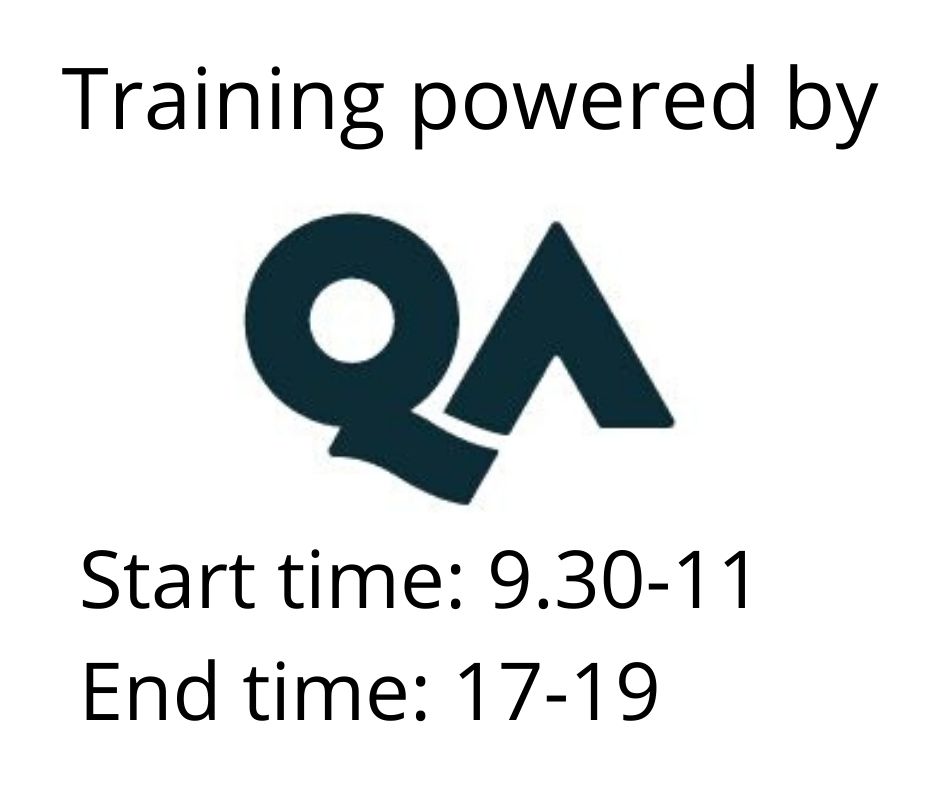Practical Introduction to Python
Utbildningsformer
Längd
3 dagar
Pris
50890 kr
QA Total Learning™ is our newest and most effective way to learn.
Welcome to this Total Learning™ course. If you are looking to begin your journey in application development, scripting, or data analysis, this Total Learning ™ course is for you.
This course will give you all the knowledge and skills required in order to develop fully functional Python applications. By the end of this course, you will be able to use Python programming concepts and paradigms to create simple apps and scripts.
Python is one of the industry’s most popular, prevalent, and diverse programming languages. This Total Learning™ course has been designed to support those who are looking to learn their first programming language, and for those with some experience in other programming languages, such as JavaScript or C#, looking to upskill in another language.
Furthermore, we will support you to use your new skills in relevant workplace projects. This will ensure that new knowledge, skills, and behaviours are embodied in everyday performance. As a result, by completing this course you will receive formal validation of real-work experience!
QA Total Learning™ is our newest and most effective way to learn.
Combining the best of digital and live learning, with access to world class industry experts, we focus on making sure you can apply our learning to help you drive impactful results in your workplace. This is all underpinned by our digital platform, giving you the tools to track progress and manage your own learning.
At the end of this course, you will be able to:
- Write short programs using core Python techniques
- Use functions and packages to make Python code modular and reusable
- Use documentation, comments, and consistent code style to make your Python readable
- Write Python programs that use external data sources
- Write Python programs using Object Oriented methods
- Use error handling and testing to make your programs robust
- Find and use suitable packages from the Python Standard Library
- Recognise how to install and import external packages
No previous knowledge of Python is assumed, although delegates should be familiar with at least one programming language.
Experience of another scripting language, such as Perl or PHP, would be an advantage, as would previous experience of object-oriented programming.
This course consists of three key learning stages, all explained during a 1-hour virtual kick off session:
- Digital stage – up to 15 hours over 3 weeks
- Live event – 3 days
- Apply stage – 15 hours over 3 months
Digital Learning
The Digital Learning is valid for 3 months from the date of the kick off session
This is a trainer-led virtual live event which will take place over 3 days. At this stage you will put to practise knowledge of core syntax, OOP, storing and processing data and interacting with the file system, and code reuse via functions, modules, and packages.
- Introduction to Python
- Data types and Variables
- Flow Control
- String Handling
- Collections
- Data Storage and File Handling
- Functions
- Error handling and exceptions
Live Event
This is a trainer-led virtual live event which will take place over 3 days. At this stage you will put to practise knowledge of core syntax, OOP, storing and processing data and interacting with the file system, and code reuse via functions, modules, and packages.
- Reinforcing core syntax from Digital phase
- Storing and processing data in collections in memory
- Storing data and objects persistently in files and databases
- Matching data using Regular Expressions
- Writing and call user functions, pass parameters and return data
- Documenting and testing the performance and quality of your code
- Filtering collections using different techniques including lambda functions and comprehensions
- Writing a generator function to return a lazy list
- Writing scripts and modules professionally
- Importing and reusing modules, understanding namespaces
- Creating a class, and understanding the benefits of OOP
- Object instantiation, inheritance, duck typing and encapsulation
- Creating properties and using decorators
Apply
We will support you to create a Python-based application in your workplace. At the end of this Apply activity, you will have attained an approval of your application and QA will formally validate your work experience (which you can add to your CV).
- Creating a Python-based application in the workplace
- Implementing OOP, testing, and coding best practices into the process of app development
- Factoring in source control practices in development
